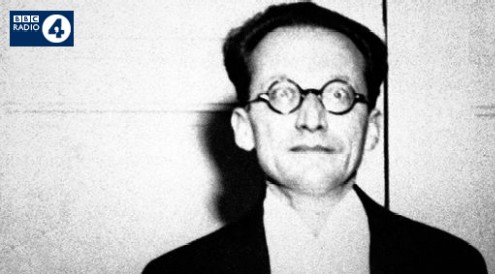
Erwin Schrödinger has proved a lasting inspiration to scientists and writers alike
By James Dacey
BBC Radio 4 is famed in the UK for broadcasting thought-provoking documentaries spanning the arts, sciences and just about anything that might be of interest to the “well-rounded intellectual”.
Yesterday was the turn of quantum mechanics via this 30-minute programme that explores the influence of Schrödinger’s cat paradox on science and popular culture.
It is an interesting show presented by UK broadcaster and comedian, Robin Ince, who talks with a handful of eminent physicists including Roger Penrose from the University of Oxford and Tara Shears from the University of Liverpool.
We are reminded that Schrödinger invented the paradox in an article of 1935 entitled The Present Situation in Quantum Mechanics as a response to the Copenhagen Interpretation of quantum mechanics that had emerged in the early 1930s. Schrödinger was bemused by the idea that all particles behaved as “fuzzy” entities until measured, and he was trying to stir a debate.
The cast discuss the appeal of the paradox and why it still fascinates scientists today. “It’s sort of a by-word for how the universe can be so amazingly complex and yet so perverse at the same time,” says Shears.
The programme also looks at how the paradox has inspired writers over the years, including Douglas Adams and more recently Philip Pullman. Writer Alan Moore explains how the multiple realities aspect of the paradox inspired a new wave of science fiction based on the idea of alternate histories.
And if you are left craving a more detailed discussion of the “Many Worlds” interpretation of quantum mechanics, you may also like to check out this webinar, part of the Physics World lecture series. It looks at the life and ideas of Hugh Everett III, who developed the idea in the 1970s.



